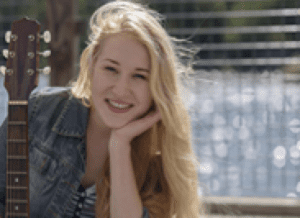Historically, music has been used as a tool for people to communicate with each other. Music is a great way to tell stories, memorize information, and share thoughts and feelings. Music is a great educative tool and can improve skills in other academic areas, such as reading and writing.
As a parent, ensuring your child has adequate reading abilities is a major concern. A child’s success in school will be significantly impacted by his or her ability to read. Even in non-literary subjects, like math, homework and tests will usually involve reading written problem-solving questions. This is why it’s important to ensure that your child is reading to the best of his or her ability. Let’s take a look at how you can improve reading skills in children with music:
Pronunciation
Learning how to pronounce words correctly can be difficult for children, especially since we often say these words extremely quickly when we’re conversing with one another. This is why children will commonly mispronounce words such as “library” by saying “libary.”
Pronouncing words correctly is a major part of being able to read out loud. Music is a great way to address pronunciation issues because it will teach children to divide words into units. Since singers often draw out words for musical purposes, a child will be able to hear the units of that word much more clearly. Not only can music improve reading skills in children by slowing words down, it can also provide them with the opportunity to practice speaking quickly. Rap music is a great way to reduce stuttering and teach children to say difficult words more quickly.
Here’s an exercise you could do with your child to help them with their pronunciation skills:
Step 1: Choose a difficult word.
For example, the word “coordinate” may be tough for a child to pronounce. The words that your child finds difficult will depend on your child’s unique situation, so use your best judgment in this step.
Step 2: Break the word down.
The best way to approach large words like this one is to break it down into smaller units. For example, it would be helpful to pronounce “co” “or” “din” and “ate” separately, and then string them together.
Step 3: Sing.
Now that you’ve broken the word down, work with your child to sing these individual units. Sing slowly and make your pronunciation much more dramatic than it would be in the regular conversation. For example, make a very obvious “O” shape with your mouth when pronouncing the “co” unit of “coordinate.” After you’ve sung all the units, try singing the whole word.
Step 4: Pronounce the word without singing.
Once you’re child is comfortable with singing the word, it’s time to speed things up and pronounce it without the help of music. You’ll probably find that the singing helped your child understand the individual components of the word more easily than just speaking the word would have.
Reading Comprehension
You can also use music as a motivating way to encourage your child to practice reading comprehension. Since children enjoy music, reading exercises that incorporate their favorite songs will feel less tedious. Here’s a great exercise to improve reading skills in children:
Step 1: Pick a song.
Make sure you choose a song that your child loves and will want to learn inside-out. Some child-friendly musical artists are: The Beatles, Taylor Swift, and Bruno Mars. For this example, let’s pretend you’re using the song “Style” by Taylor Swift. This is a catchy song that will be sure to stick to your memory quite easily.
Step 2: Sing the song and learn the words.
This will be an enjoyable step, but is also optional because your child might already know the words to his or her favorite song. If you’d like to skip this step, try this exercise with a song your child already knows.
Step 3: Create flashcards with lines from the song.
This is where your child’s reading comprehension will come into the equation. Try writing down lines from the song on flashcards. Make sure the words are easy to read. Then, sit across from your child and show them the flashcard. Ask them to sound out the words they see and sing back the line with the correct melody.
This is a great way to encourage your child to not only sound out one word, but a group of words. Often, children will find reading a whole sentence out loud overwhelming. Try using music they know to make the sentence seem less daunting.
In Conclusion.
Remember to take things slow and use music that your child enjoys to keep them motivated. Music is a great learning tool, so if you’re interested in taking things a step further, check out this article on the best guitar for your child’s small hands.
About the Author: Natalie Wilson
 Natalie Wilson is an avid music lover and guitar player who has dedicated her life to sharing what she knows on my blog, Musical Advisors. You’ll find a wide range of topics on her blog, including reviews, tutorials, and tips for musicians.
Natalie Wilson is an avid music lover and guitar player who has dedicated her life to sharing what she knows on my blog, Musical Advisors. You’ll find a wide range of topics on her blog, including reviews, tutorials, and tips for musicians.
Contact Natalie at , or follow her on Twitter.


As a young child, I really never had the opportunity to fully play music. I come from a very musical heritage. So….at age 75, I became determined that I would really get serious. So….I started playing the ukulele. It was so enjoyable, that I graduated to a 32 base accordion. To say the least, it is a challenge to not watch your hands and pay attention. I can play almost anything I have heard by ear and also can read music to boot. It has helped me regain some mental control of my life after suffering from a major stroke. The music not only provides pleasure, but it has helped me with my memory and reading skills. I highly recommend music as therapy.